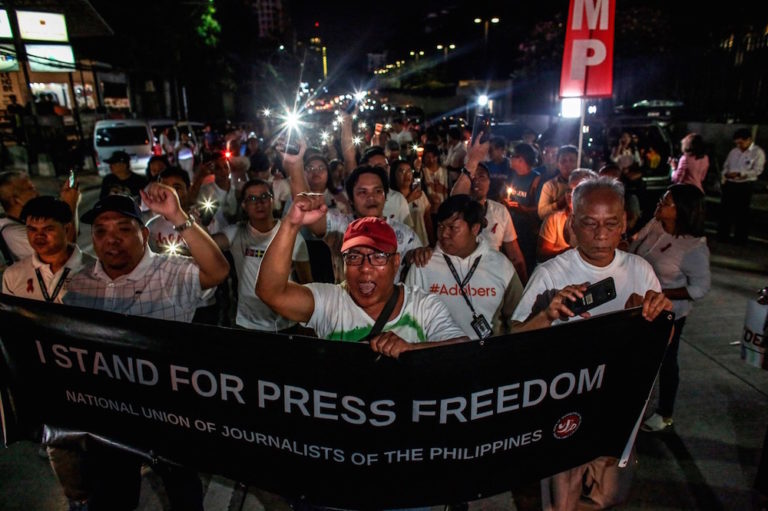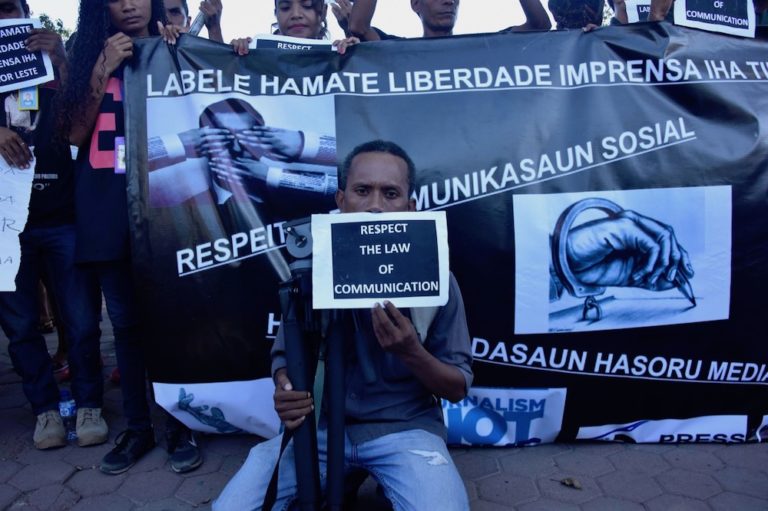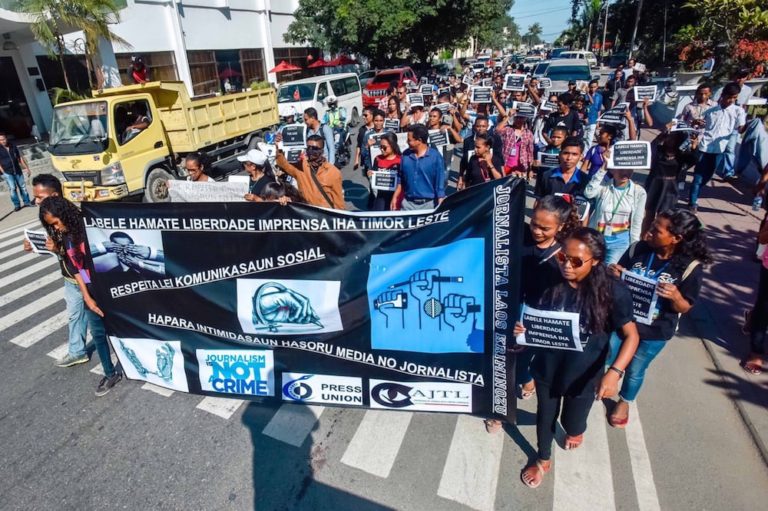(IFJ/IFEX) – The following is an IFJ media release: Crucial last days for East Timor president to veto criminal defamation in East Timor The International Federation of Journalists (IFJ) has written to the President of the Democratic Republic of Timor-Leste, Kay Rala Xanana Gusmao, calling for a veto of the penal code proposed by the […]
(IFJ/IFEX) – The following is an IFJ media release:
Crucial last days for East Timor president to veto criminal defamation in East Timor
The International Federation of Journalists (IFJ) has written to the President of the Democratic Republic of Timor-Leste, Kay Rala Xanana Gusmao, calling for a veto of the penal code proposed by the Government of Timor-Leste criminalising defamation which is due to be promulgated in two days’ time.
“Criminal defamation is an affront to free speech,” said IFJ president Christopher Warren in his letter to Kay Rala Xanana Gusmao.
“It has the chilling effect of silencing not only the individual charged but the media community as a whole, encouraging self censorship motivated by fear,” said Warren.
“The steps to building a democracy are not paved with draconian laws which punish journalists for doing their work,” said Warren.
The IFJ, supporting IFJ East Timor affiliate Timor-Lorosa’e Journalists’ Association (TLJA)’s campaign to stop criminal defamation, has written to the East Timor president asking him to use his constitutional powers to veto the law in order to guarantee democracy and to uphold democratic institutions.
The IFJ became alarmed over the media situation in East Timor after Prime Minister Mari Altakiri signed an executive decree approving a penal code that criminalises defamation on December 6, 2005, which will enter into force on February 10, 2006 unless the president uses his constitutional powers to veto the law.
The new penal code contains several harsh sections that will have a detrimental impact on journalism in East Timor. Under Article 173, individuals will face three years’ imprisonment for defaming public officials, and the code contains no limits on fines.
Moreover, Article 176 doubles the term of imprisonment, from one year to two, where the defamation was committed through the media. Where the defamation is both through the media and committed against individuals performing “public, religious or political duties,” the term of imprisonment is increased to three years.
“By introducing this Decree Law, the Government of East Timor is moving away from the truly democratic principles of freedom of the press and free speech,” said Warren.
“A free press must be held accountable for its actions, but criminal defamation threatens the liberty of journalists, the fearless nature of a truly free press and hits at the very heart of a truly democratic society,” said Warren.
The IFJ has called on all affiliates to support TLJA in its campaign to stop criminal defamation in East Timor by sending letters of protest. A template letter is available to download from the IFJ website at http://www.ifj.org/default.asp?Index=3697&Language=EN. Download the letter and send to lusitania@presidente-tl.org before February 10.
The IFJ represents over 500,000 journalists in more than 110 countries.


